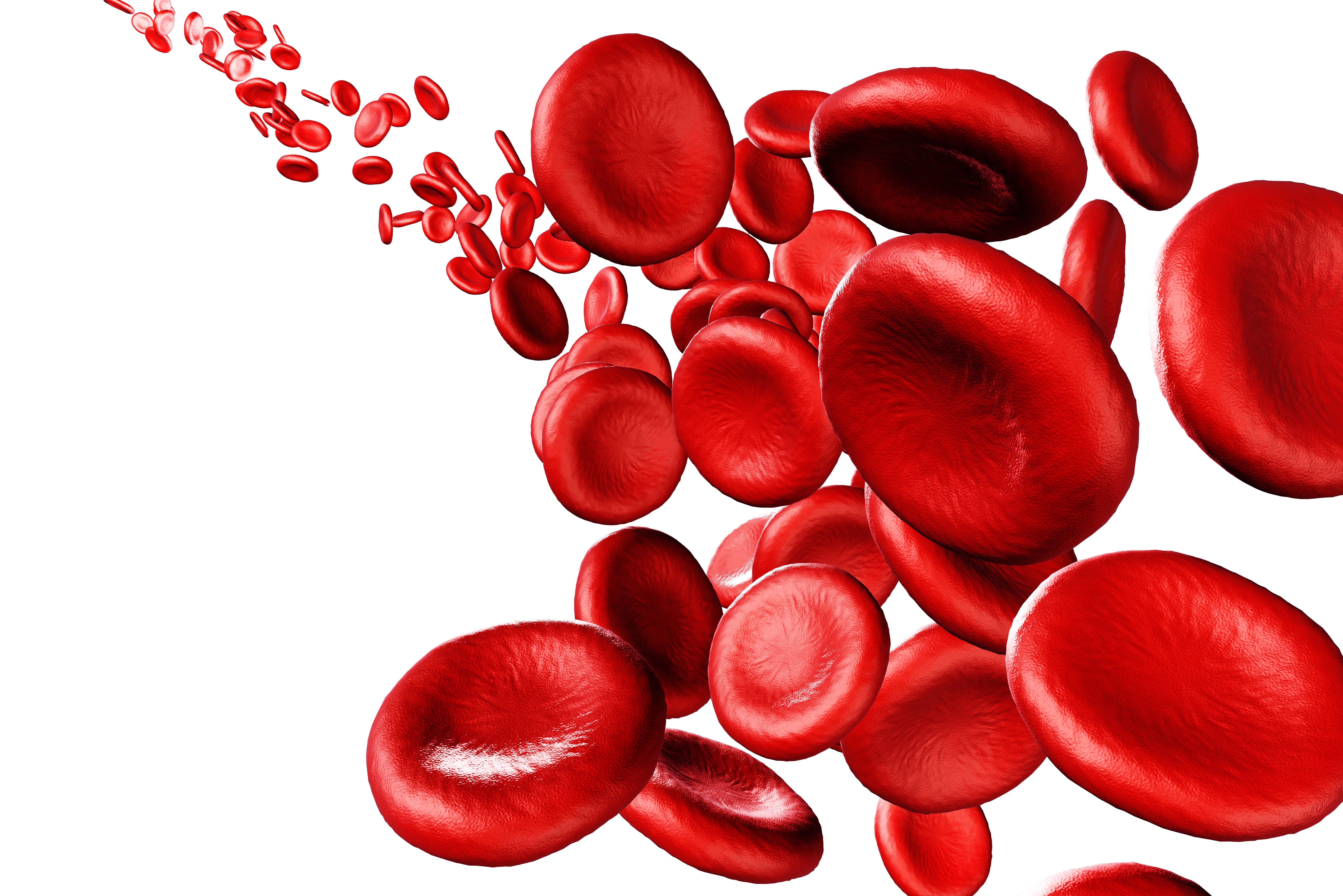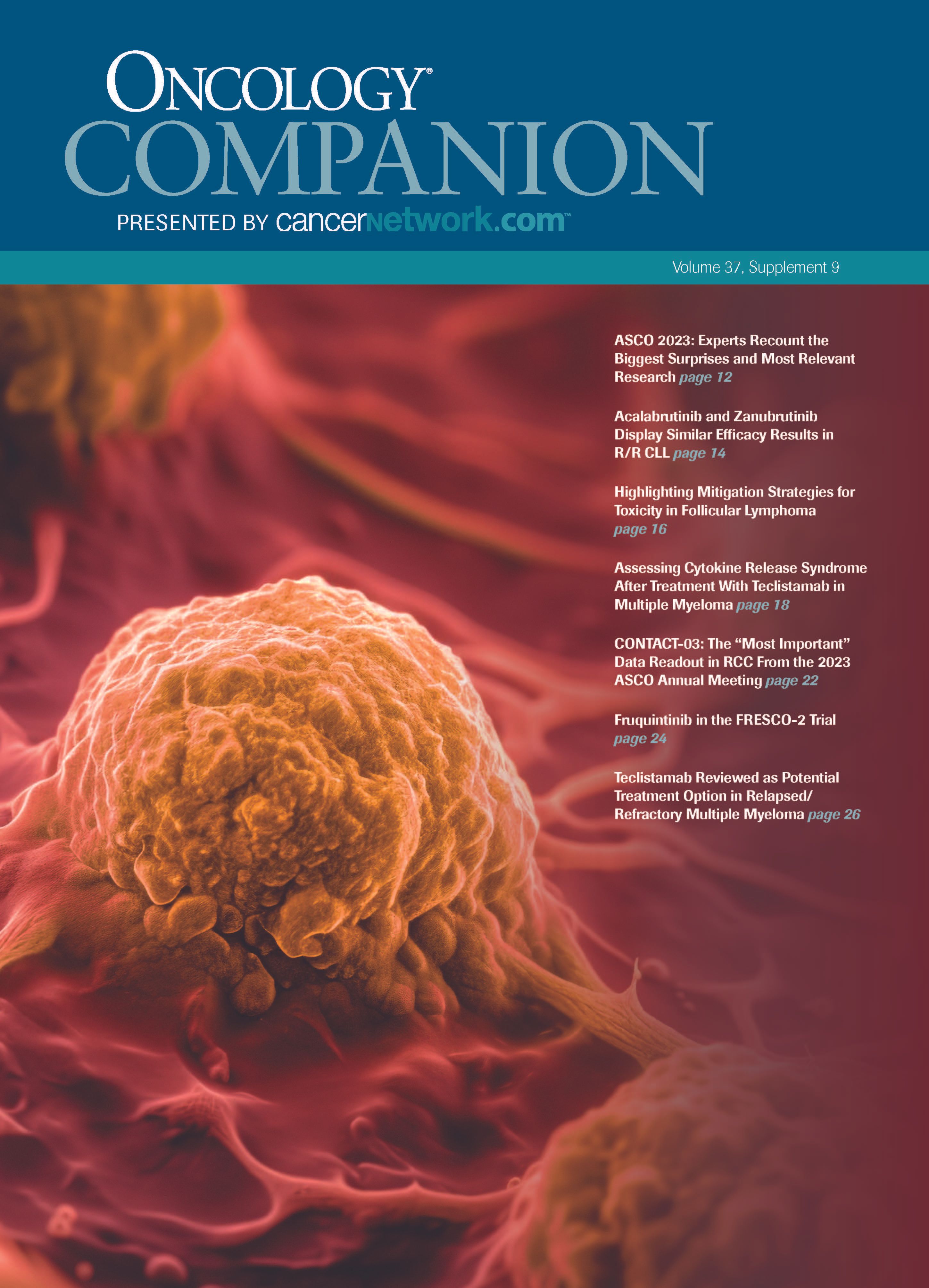Session 6: Insights from Health Care Systems on Bispecifics: Patient Treatment, Monitoring and Transition of Care : Episode 13
Teclistamab Reviewed as Potential Treatment Option in Relapsed/Refractory Multiple Myeloma
Publication
Article
ONCOLOGY® CompanionONCOLOGY® Companion, Volume 37, Supplement 9
Volume 37
Issue 9
Pages: 26-27
CancerNetwork hosted a Training Academy focused on sequencing therapies for patients with multiple myeloma who are treated with bispecific antibodies.
CancerNetwork hosted a Training Academy focused on sequencing therapies for patients with multiple myeloma who are treated with bispecific antibodies.
CancerNetwork hosted a Training Academy focused on sequencing therapies for patients with multiple myeloma who are treated with bispecific antibodies.

Available Treatment Options
- For patients who relapse, several treatment options are available in the realm of:
- Proteasome inhibitors
- Bortezomib (Velcade) or carfilzomib (Kyprolis)
- Immunomodulatory drugs
- Lenalidomide (Revlimid), pomalidomide (Pomalyst), or daratumumab (Darzalex)
- Other CD38 antibodies
- For patients who relapse late, treatment options include chimeric antigen (CAR) T-cell therapies such as:
- Idecabtagene vicleucel (Abecma) or ciltacabtagene autoleucel (Carvykti)
Teclistamab in Relapsed/Refractory Multiple Myeloma
- It was recently approved in the United States under the same indication as CAR T-cell therapy.1
- The trial that led to the approval was the phase 1/2 MajesTEC-1 trial (NCT03145181; NCT04557098).2
- The risk of cytokine release syndrome (CRS) is prevalent during the first few doses, and step-up dosing should be given.
- Patients should be hospitalized when teclistamab is given initially to monitor for adverse effects (AEs).
- The treatment is given subcutaneously but also indefinitely, which can increase the chance of developing long-term AEs.
AE Management
- For CRS, tocilizumab (Actemra) can be given to mitigate the AEs. However, most institutions or centers will hold off on tocilizumab if CRS is grade 1 and will observe the patient’s response before immediately treating.
- Some will start treatment when a fever becomes present to stop it from progressing and allow more hospital beds to become available, as teclistamab must be given in an inpatient setting.
Looking Forward
- Elranatamab (Elrexfio) was evaluated in the phase 1 MAGNETISMM-1 trial (NCT03269136), in which observed that 53% of patients who were given prior BCMA therapy responded to treatment.3
- ABBV-383 antibody and linvoseltamab have shown similar efficacy for the indicated population.
- Experts hope to keep studying these treatments in earlier lines of therapy to see whether higher responses can be reached.
References
- FDA approves teclistamab-cqyv for relapsed or refractory multiple myeloma. News release. FDA. October 25, 2022. Accessed August 24, 2023. https://bit.ly/3Fgsi4s
- Moreau P, Garfall AL, van de Donk NWCJ, et al. Teclistamab in relapsed or refractory multiple myeloma. N Engl J Med. 2022;387(6):495-505. doi:10.1056/NEJMoa2203478
- Raje N, Bahlis NJ, Costello C, et al. Elranatamab, a BCMA targeted T-cell engaging bispecific antibody, induces durable clinical and molecular responses for patients with relapsed or refractory multiple myeloma. Blood. 2022;140(suppl 1):388-390. doi:10.1182/blood-2022-166494
EP: 1.Overview of Treatment Options for the Management of Relapsed/Refractory Multiple Myeloma (R/R MM)
EP: 2.Data Updates on BCMA-Targeting Bispecific Antibodies in R/R MM Treatment
EP: 3.MonumenTAL-1: Evaluating the Anti- GPRC5D-Targetings Bispecific in R/R MM
EP: 4.FCRH5-Targeting and Other Emerging Bispecifics in R/R MM
EP: 5.Incorporating Teclistamab in R/R MM: Insights from Clinical Practices Across the US
EP: 6.Step-up Dosing and Monitoring in Patients with MM on Bispecifics: Health System Perspectives
EP: 7.Best Practices for Transition of Care in Patients with MM on Teclistamab
EP: 8.Managing Infections and Other Toxicities Associated with Bispecifics in MM
EP: 9.Sequencing BCMA-Targeting Bispecifics in R/R MM Treatment
EP: 10.Choosing Between BCMA and Non-BCMA Bispecifics in Multiple Myeloma Treatment
EP: 11.Future Perspectives on the Role of Bispecifics in MM
EP: 12.Key Takeaways from Health Care Systems on the Role of Bispecifics in MM
Now Viewing
EP: 13.Teclistamab Reviewed as Potential Treatment Option in Relapsed/Refractory Multiple Myeloma
EP: 14.Treatment Recommendations for Relapsed Multiple Myeloma
Articles in this issue

ASCO 2023: Experts Recount the Biggest Surprises and Most Relevant Research
Highlighting Mitigation Strategies for Toxicity in Follicular Lymphoma
Fruquintinib in the FRESCO-2 Trial
Assessing Cytokine Release Syndrome After Treatment With Teclistamab in Multiple Myeloma
CONTACT-03: The “Most Important” Data Readout in RCC From the 2023 ASCO Annual Meeting
Acalabrutinib and Zanubrutinib Display Similar Efficacy Results in R/R CLL
Teclistamab Reviewed as Potential Treatment Option in Relapsed/Refractory Multiple Myeloma
Related Content
Navigating AE Management for Cellular Therapy Across Hematologic Cancers
Tiba Al Sagheer, PharmD, BCOP, BCACP;Rebecca Gonzalez, PharmD, BCOP, FASTCT;Syeda Saba Kareem PharmD, BCOP
August 11th 2025Podcast
A panel of clinical pharmacists discussed strategies for mitigating toxicities across different multiple myeloma, lymphoma, and leukemia populations.